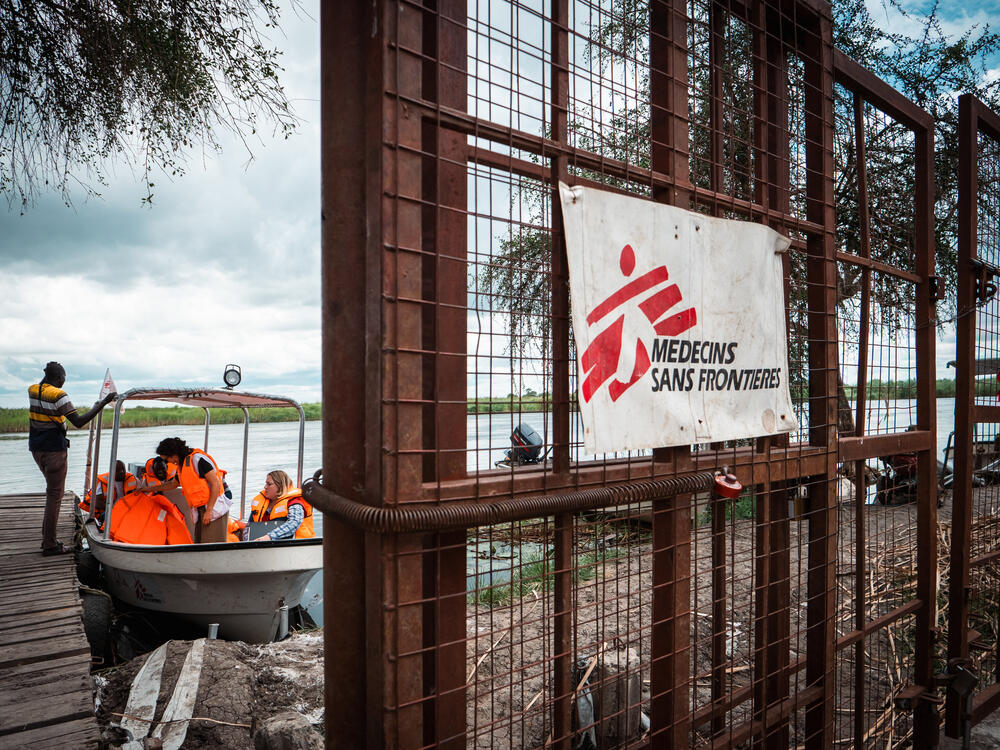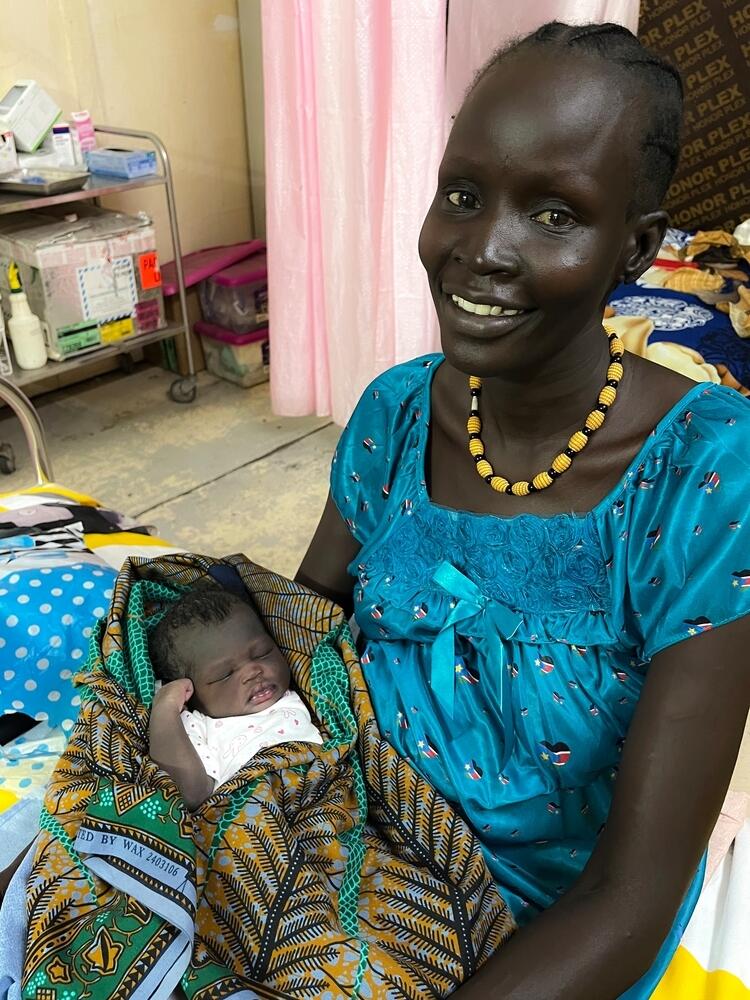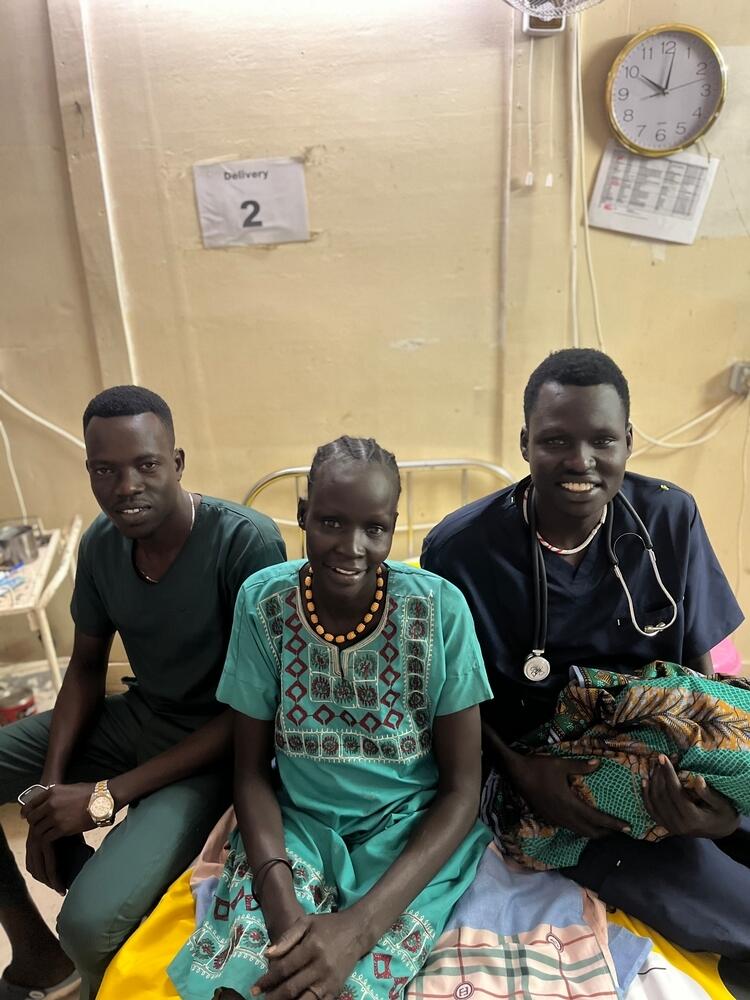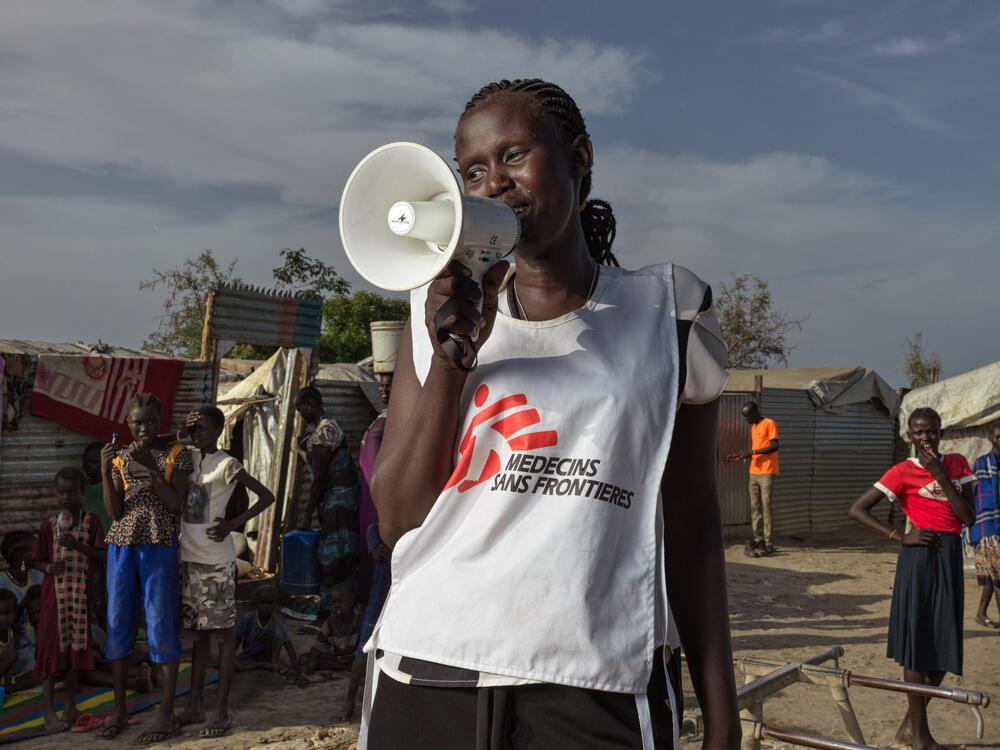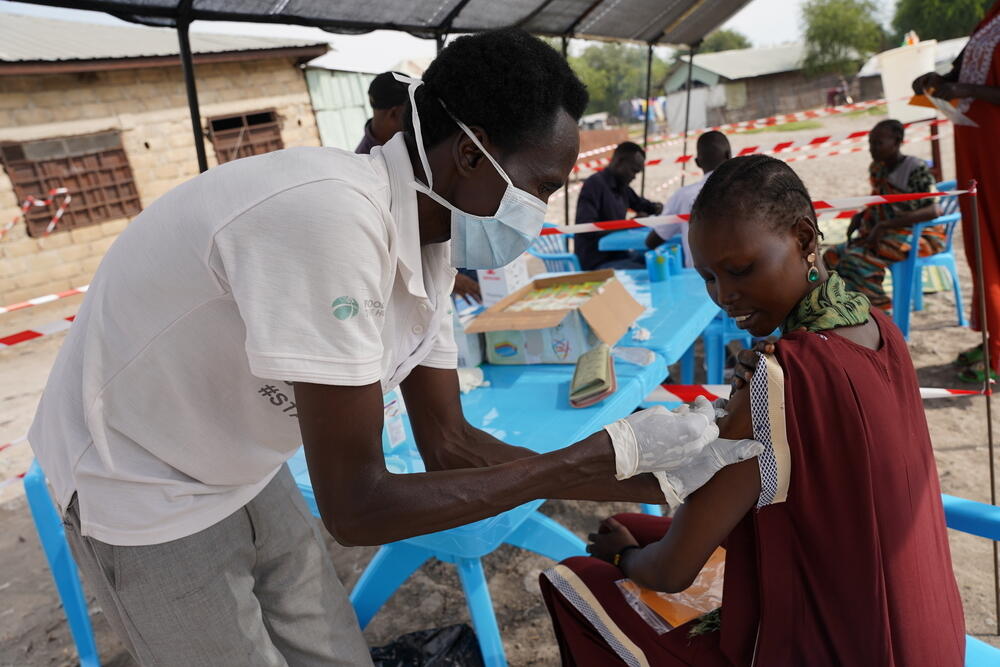South Sudan: “If it wasn’t for MSF I wouldn’t be here today”
Nyakuola Nguot Gang gave birth to each of her six children in MSF’s long-standing maternity department in the far north of South Sudan, where she lives with extended family. While she was pregnant with her youngest daughter Nyamuch, she contracted hepatitis E, a disease which can be fatal for pregnant women.
What is Hepatitis E?
Hepatitis E is the most common cause of acute viral hepatitis and is particularly dangerous for pregnant women, with a fatality rate of 25 percent as well as an increased risk of spontaneous abortion, stillbirth and neonatal complications. There is no specific treatment available.
The virus is transmitted through faecal contamination of food and water. This means large-scale outbreaks usually occur where water and sanitation are poor, such as in camps for refugees and displaced people.
“Hepatitis E attacked [me]; I almost lost my life while I was pregnant in September,” says Nyakuola. “I was diagnosed at the hospital. I thought it was only symptoms of my pregnancy, because my body was aching and I had a fever.
“I went for a blood test and that’s when the hepatitis E was discovered.”
Nyakuola’s pregnancy meant that she was in the highest-risk category if she caught hepatitis E. Deaths had already occurred in the community since the outbreak was first declared in Old Fangak.
The virus had continued to circulate due to a lack of sustainable clean water supply and waste management in the flood-affected region.
“We are being affected by water. Because of water that is why we have many health issues,” says Nyakuola.
“I was experiencing abdominal pain, pain in the chest and an infection in both kidneys. This also affects the baby, and the mother feels like the baby wants to come out.”
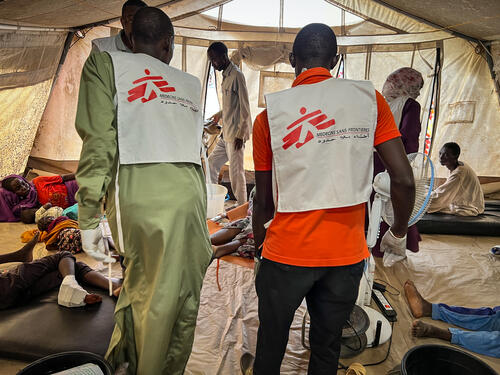
Our work saves lives
In Nyakuola’s mind, “the fate of my baby was the same as mine. If I died, the baby would’ve died.”
But Nyakuola had the advantage of being vaccinated before she conceived. She wasn’t fully vaccinated, but had managed to receive two of three doses in a previous vaccination campaign ran by MSF.
Fortunately Nyakuola made a full recovery and her daughter Nyamuch was born healthy on 1 January 2025 - just in time to be featured as an MSF 'new years' baby'!
The importance of vaccination
In a world first, in 2022 healthcare teams in South Sudan carried out a vaccination campaign in response to an active outbreak of hepatitis E in Bentiu camp. Following the campaign's success, it was rolled out to other parts of the country.
“The vaccination announcement was explained in the whole area. People came to us here to campaign and to give us information. People in this community were vaccinated, all girls starting from the age of 15 and above. We were all vaccinated,” says Nyakuola.
“It was a personal decision to get vaccinated although other people did not want to receive their vaccination. Those who lived in the city or town before knew the importance of the vaccine, but others did not."
“Those who have witnessed people who have been vaccinated and live have made the decision to also get the vaccine.”
In line with all the other services MSF provides, the vaccination was free. For a family like Nyakuola’s it would be impossible to stay healthy without free healthcare. She says, “One of the difficult things is that my husband is unemployed. He gets nothing because he is a disabled person. He lost his legs to a snakebite.
“I thank and appreciate MSF. If it wasn’t for MSF I wouldn’t be here today.”
MSF and South Sudan
Médecins Sans Frontières/Doctors Without Borders (MSF) works in hospitals and clinics throughout South Sudan, where we run some of our biggest programmes worldwide.
As well as providing basic and specialised healthcare, our teams respond to emergencies and disease outbreaks affecting isolated communities, internally displaced people and refugees from Sudan.
